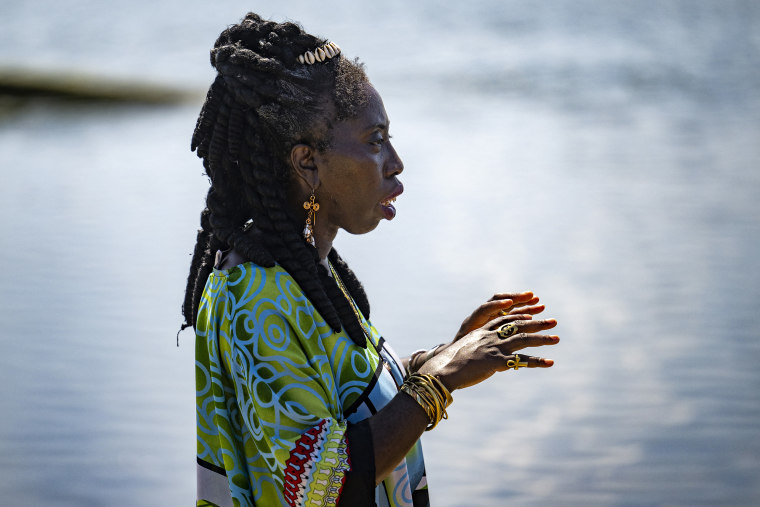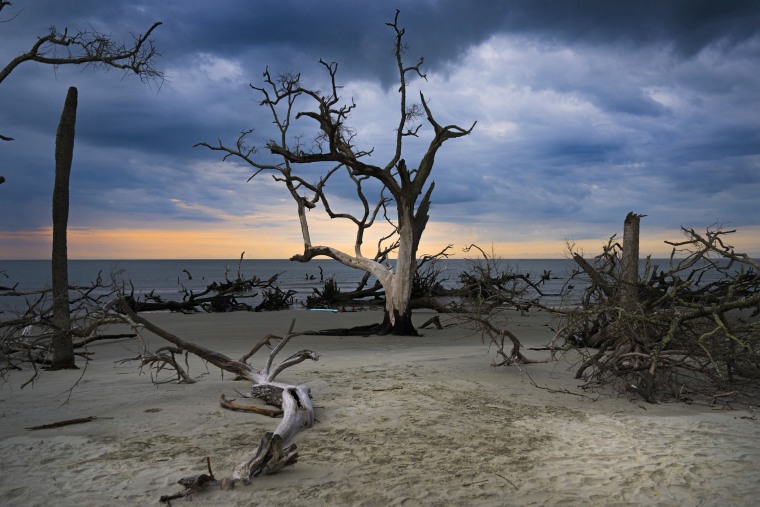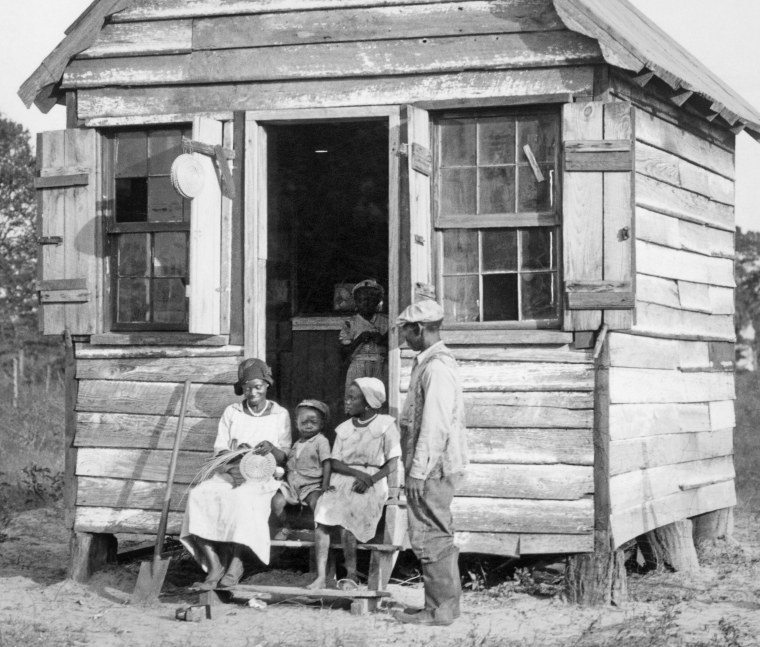Marquetta Goodwine is used to educating others about her people, the Gullah Geechee, and their traditions, art and history.
The Gullah Geechee are descendants of enslaved people who live in coastal U.S. communities along the Southeast. Isolation has allowed them to maintain their distinct way of life, including their language, cuisine, spiritual practices and craft traditions like basket weaving.
“That allowed our Africanisms, as others call it, to continue to evolve here in this land but to also amalgamate into this unique Gullah Geechee culture,” said the chieftess of the Gullah Geechee nation, who goes by "Queen Quet."
But Queen Quet, who grew up in a Gullah community on St. Helena Island, South Carolina, is now educating others about the pressing threat of climate change. Residents in these communities are at risk of losing their homeland and parts of their heritage because of more frequent storm surges, rising sea levels and other impacts of climate change.

“Flooding — it’s causing saltwater inundation in places that were freshwater areas, which also impacts some people’s farming ability,” she said. In 2019, Queen Quet testified before Congress about the dangers the changing climate poses to Gullah Geechee traditions. She urged members of Congress to provide funding to build oyster reefs and other infrastructures to protect shorelines from sea level rise and erosion.
Over the past year, the Biden administration made investments to better prepare communities for the impacts of climate change and Gullah Geechee communities are seeing the benefits.
“President Biden has conserved more than 41 million acres of lands and waters in just over three years,” said Brenda Mallory, chair of the White House Council on Environmental Quality. “He is on track to conserve more lands and waters than any president in history.”

The National Oceanic and Atmospheric Administration, or NOAA, is administering millions of dollars to help traditionally underserved coastal communities combat climate change. That includes the almost 12,000-square-mile stretch of land spanning from North Carolina to Florida known as the Gullah Geechee Cultural Heritage Corridor. This land, designated by Congress in 2006, protects and preserves the Gullah Geechee’s rich history and culture by allowing areas along the corridor to leverage federal funds for programs and projects and receive technical and financial assistance from the National Park Service. In April 2023, NOAA also announced more than $265 million in funding for 38 new projects to strengthen the climate resilience of coastal ecosystems and communities. That included $6.2 million for programs in South Carolina to speed up living shoreline projects in underserved communities and have the Marine Corps Air Station Beaufort team up with the Gullah Geechee Cultural Heritage Corridor to support a community ambassador program for living shorelines.
Projects recommended by the NOAA include $536,000 to hire new staff to help build relationships between restoration organizations and Gullah Geechee communities, identify the resilience priorities of community members, and form local advisory committees to support future restoration efforts.

Tia Clark runs Casual Crabbing with Tia, a business in Charleston, South Carolina, focused on catching blue crabs, a key ingredient in Gullah Geechee cuisine. She is part of conservation efforts to build oyster reefs and create a habitat for sea creatures to survive. She said warmer temperatures have resulted in habitat loss for crabs. In addition, blue crabs are not retreating to deeper waters to shelter from colder weather as often, so crabbers are putting more pressure on the blue crab population. South Carolina recorded a record low number of blue crabs in 2023, according to the South Carolina Department of Natural Resources.
“When we start losing some of these resources and when it really starts hitting home and affecting more people is when some real change is going to happen,” Clark said.
She said she believes working along the water has changed her life for the better and brought her closer to her culture. However, she said, she’s seen conditions for the wildlife decline.
“With climate change, if it stays this warm, then the crabs are around longer, which means there’s going to be more pressure put on them by me and other people that are trying to catch them,” Clark said.
She works with state agencies and local schools to educate students about the importance of protecting the water for younger generations.
“It’s scary for me to think about our resources not being here because of climate change,” Clark said.
Multiple federal programs target support for the Gullah Geechee Cultural Heritage Corridor and combat climate change. Those living along the corridor see it as a vital fight to preserve what’s sacred to them — land, water and their way of life.
“Every part of what we’re doing is to ensure our survival as native Gullah Geechees and the survival of our traditions,” Queen Quet said. “We say, ‘We done been here, we not going nowhere at all.'”
For more from NBC BLK, sign up for our weekly newsletter.